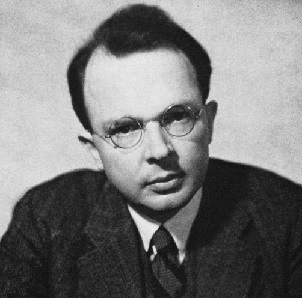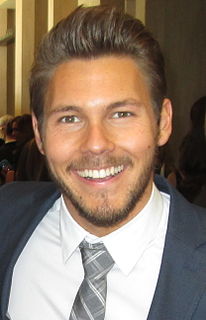A Quote by Greg Graffin
I don't bill myself as an atheist but as a naturalist. Naturalism is a belief system. A lot of scientists bristle at that. We all have to believe we can find the truth. Evidence is my guide. I rely on observation, experimentation and verification.
Related Quotes
We have three approaches at our disposal: the observation of nature, reflection, and experimentation. Observation serves to assemble the data, reflection to synthesise them and experimentation to test the results of the synthesis. The observation of nature must be assiduous, just as reflection must be profound, and experimentation accurate. These three approaches are rarely found together, which explains why creative geniuses are so rare.
I have great hope and faith, but it's a humanistic faith based in facts; you have to believe that facts exist. We can all arrive at the same facts if we engage in the process of experimentation, observation, and verification, which can solve more of the world's major problems than a debate over whether God does or doesn't exist.
I believe in evidence. I believe in observation, measurement, and reasoning, confirmed by independent observers. I'll believe anything, no matter how wild and ridiculous, if there is evidence for it. The wilder and more ridiculous something is, however, the firmer and more solid the evidence will have to be.
Now, as when I made films that were too autobiographical, the problem is how to escape naturalism. If you tell a strictly true story, because the way you are telling it is false, it creates naturalism. But I become a naturalist. And to become a naturalist is something I avoid. It is fake life - that is the problem. It is because we are familiar with situationnisme, and the critique of the spectacle, et cetera, which is a very fair criticism. People who have no life, and who watch this fake life on a screen - it's a very alienated situation. And that's what situationnisme is about.
It would be impossible to accept naturalism itself if we really and consistently believed naturalism. For naturalism is a system of thought. But for naturalism all thoughts are mere events with irrational causes. It is, to me at any rate, impossible to regard the thoughts which make up naturalism in that way and, at the same time, regard them as a real insight into external reality...If it is true, then we can know no truths. It cuts its own throat.
Even if the absence of evidence for a given god were not evidence of its absence, it would still be evidence that the belief in that god is unreasonable. That's the only proposition that any atheist of any kind has to demonstrate in order to win the argument. Because anything beyond that... is just having fun.
Perfect definition of atheist dogma. Your mind has been subjected to subtle mental conditioning year after year. Now the atheist lie has become the truth to you. A lie that can be blown away with the real truth. It just takes time to unwind the atheist mental conditioning. The truth is out there. Outside of atheist dogma lies the truth!
The world of strict naturalism in which clever mathematical laws all by themselves bring the universe and life into existence, is pure [science] fiction. Theories and laws do not bring matter/energy into existence. The view that they nevertheless somehow have the capacity seems a rather desperate refuge...from the alternative possibility...Trying to avoid the clear evidence for the existence of a divine intelligence behind nature, atheist scientists are forced to ascribe creative powers to less and less credible candidates like mass/energy and the laws of nature.
































